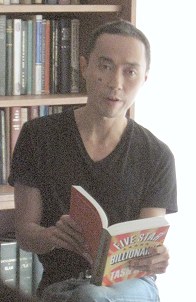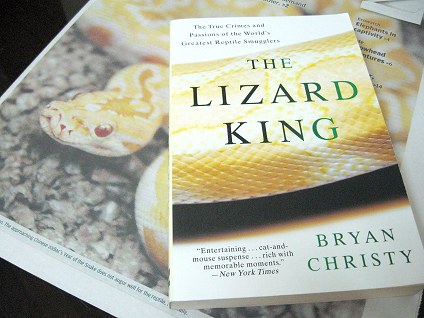For one, Hilary Mantel brought up some royal bodies and got roasted by the UK media and some. Though some were offended by what she said about Kate Middleton, others have rallied around her and accused critics of quoting the offending passages out of context. Also, she's not the first stormraising essayist on the London Review of Books.
So far, however, Mantel has appeared fireproof. The media storm over her remarks has instead swept Mantel up Amazon's charts. The author who wrote of goings-on in the court of Henry VIII will still receive the Bodley Medal at the Oxford Literary Festival.
Sci-fi writer and Internet phenomenon John Scalzi responds to the Horrible Historian's comments on libraries with his own personal history with libraries. Worth reading, because it reminds some of us about our own library experiences. Broke up the following excerpt because it was too long:
"I don’t use my local library like I used libraries when I was younger," he writes. "But I want my local library, in no small part because I recognize that I am fortunate not to need my local library — but others do, and my connection with humanity extends beyond the front door of my house.
"My life was indisputably improved because those before me decided to put those libraries there. It would be stupid and selfish and shortsighted of me to declare, after having wrung all I could from them, that they serve no further purpose, or that the times have changed so much that they are obsolete."
Take that.
While we're on the subject, someone asks if libraries are the next start-up incubators.
Elsewhere:
- Someone out there is hankering for the return of the illustrated book, because certain things being written these days are just begging "to be realized in ink."
- The Canadian French language police have 'allowed' restaurants to use Italian words such as "pasta" on menus. This issue reportedly arose when some restaurants were pursued by the Quebec Board of the French Language over the use of too many foreign words. An Italian restaurant in Montreal, for instance, got cited "for excessive use of Italian on its menu."
- Food writer Jason Sheehan finds out why some people take their food too seriously. He'd said something uncomplimentary about chicken rice in Singapore and some angry kiasu-types warned him "to never walk alone in that restaurant’s neighborhood again."
- An author pens an open letter to the shoplifter who stole a copy of his books.
- Women writers (often) get asked the darnedest questions during interviews. Of course, this piece wouldn't be complete without Hilary Mantel.
- The Librotraficante saga continues: the movement sets up an underground library.
- Ever wondered what some music albums would look like as book covers?
- Is the Internet reviving the short story? Not really.
- Crime writer Patricia Cornwell wins damages in a financial mismanagement case, which she blames entirely on the firm that managed her money. But it seems her alleged "taste for Ferraris, helicopters and a temporary apartment in New York City she rented for $40,000 per month", among other things, did not weigh much against her.
- Ben Yagoda on how to not write bad. One tip: "...the best writing has some of the qualities of conversation; and, in fact, my favorite short piece of writing advice is 'read it aloud.' When my students write—either in a scholarly, journalistic or essayistic mode—it’s almost as if they’re cowed, or intimidated, by the expectations they perceive. They end up writing stiffly and borderline pretentiously, using a fancy word like 'reside,' when the simpler 'live' is stronger and better."
- Literature and indie music - more in common than previously thought?
- A novelist and the tyranny of the word count.
- Reader's Digest files for Chapter 11 for the second time in less than four years.
- Is 'sick-lit' a symptom of an ill publishing industry?
- Today, video games are being blamed for certain social ills. Way back when, it was comic books. And it was supported with flawed findings.
Categories:
Book Marks







